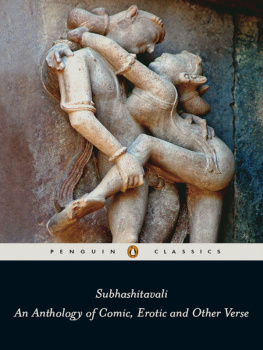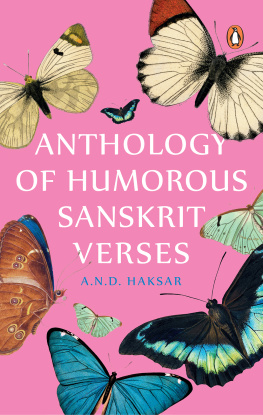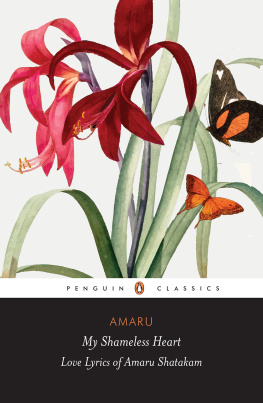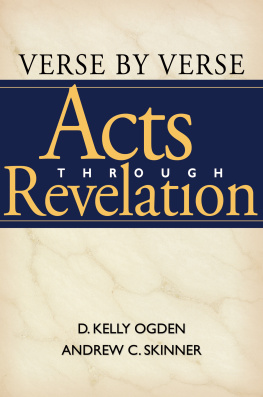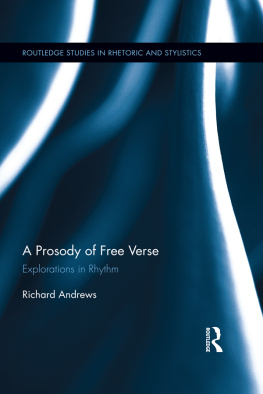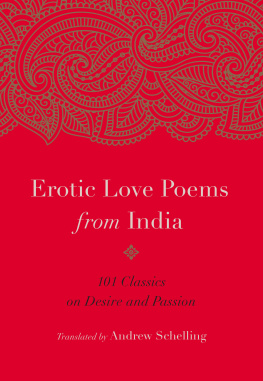Selected and translated from the Sanskrit by
A.N.D. Haksar
SUBHSHITVALI
An Anthology of Comic, Erotic and Other Verse

PENGUIN BOOKS
PENGUIN BOOKS
Published by the Penguin Group
Penguin Books India Pvt. Ltd, 11 Community Centre, Panchsheel Park, New Delhi 110 017, India
Penguin Group (USA) Inc., 375 Hudson Street, New York, New York 10014, USA
Penguin Group (Canada), 90 Eglinton Avenue East, Suite 700, Toronto, Ontario M4P 2Y3 , Canada (a division of Pearson Penguin Canada Inc.)
Penguin Books Ltd, 80 Strand, London WC2R 0RL , England
Penguin Ireland, 25 St Stephens Green, Dublin 2, Ireland (a division of Penguin Books Ltd)
Penguin Group (Australia), 707 Collins Street, Melbourne, Victoria 3008, Australia (a division of Pearson Australia Group Pty Ltd)
Penguin Group (NZ), 67 Apollo Drive, Rosedale, Auckland 0632, New Zealand (a division of Pearson New Zealand Ltd)
Penguin Books (South Africa) (Pty) Ltd, Block D, Rosebank Office Park, 181 Jan Smuts Avenue, Parktown North, Johannesburg 2193, South Africa
Penguin Books Ltd, Registered Offices: 80 Strand, London WC2R 0RL , England
First published by Penguin Books India 2007
Copyright A.N.D. Haksar 2007
Cover: Detail from Kandariya Mahadev temple dedicated to Shiva (11th century)
( 2006 shunya.net)
All rights reserved
ISBN: 978-0-143-10136-9
This digital edition published in 2013.
e-ISBN: 978-8-184-75735-4
This book is sold subject to the condition that it shall not, by way of trade or otherwise, be lent, resold, hired out, or otherwise circulated without the publishers prior written consent in any form of binding or cover other than that in which it is published and without a similar condition including this condition being imposed on the subsequent purchaser and without limiting the rights under copyright reserved above, no part of this publication may be reproduced, stored in or introduced into a retrieval system, or transmitted in any form or by any means (electronic, mechanical, photocopying, recording or otherwise), without the prior written permission of both the copyright owner and the above-mentioned publisher of this book.
PENGUIN BOOKS
SUBHSHITVALI
Aditya Narayan Dhairyasheel Haksar was born in Gwalior and educated at the Doon School and the universities of Allahabad and Oxford. A well-known translator of Sanskrit classics, he has also had a distinguished career as a diplomat, serving as Indian high commissioner to Kenya and the Seychelles, minister to the United States, and ambassador to Portugal and Yugoslavia.
His translations from the Sanskrit include Hitopadea and Simhsana Dvtriik, both published as Penguin Classics, Jatakamala (with a foreword by the Dalai Lama) published by HarperCollins India, and the first-ever rendition of Madhavanala Katha, published by Roli Books as Madhav and Kama. He has also compiled A Treasury of Sanskrit Poetry, which was commissioned by the Indian Council for Cultural Relations.
P. M. S.
For Sharada, Vikram and Annika with love
Introduction
The Sanskrit word subhshita can be translated literally as well said. It is often used for an epigrammatic stanza, the meaning or mood of which is complete in itself. Such a verse, also known as muktaka, could be an independent composition or part of a larger work. Its themes had a large variety, but its form was a constant two metric lines of equal weight, sometimes presented in four sections because of their length. At its best it combined brevity with a felicitous compression of thought or emotion. Many such verses passed into literature as maxims, proverbs or just memorable, quotable poetry.
Subhshita verses are a characteristic and popular feature of classical Sanskrit literature. A recognized art form, they occur in the great epics, as a part of longer poems, and in plays and prose works. Much esteemed in cultured intercourse, they lent themselves to collection in anthologies. A number of these, compiled in various parts of the country during the last one thousand years, are extant. Prominent among them is Subhshitvali, or a circlet of well-said verses, from which a selection is presented here in translation.
The contents of some subhshita compilations are confined to a single theme or attributed to a single author. Subhshitvali is of the second type. It is a collection of 3527 verse epigrams, grouped under 101 subject headings, and ascribed by name to 362 poets, apart from the many which are anonymous.
Academic opinion dates Subhshitvali to c. fifteenth century CE . a famous ruler of Kashmir who is known to have patronized Sanskrit letters. Thus, apart from the literary wealth of its contents, the compilation is also a pointer to the prevalence and extent of Sanskrit learning in medieval Kashmir.
The Subhshitvali verses span a period of at least 1500 years preceding the time of its compilation. Those extracted from the epicsMahbhrata and Rmyanaare probably much older. The variety is immense. The anthology begins and ends on a devout note of divine invocations. In between, there are reflections on poets and poetry, on virtue and wickedness, nobility and meanness. There are numerous allegorical epigrams and verses on nature. Not unexpected, there is a rich collection of erotic poetry on all aspects of love, symbolic and actual, emotional as well as physical. This is followed by heroic, humorous and satiric verses, panegyrics and pen-pictures, and sage observations on worldly conduct. Finally there are musings on the human condition, on its transience and insignificance, and on moral duty and renunciation.
The tone of these epigrams ranges from the pious to the profane, the lyrical to the sententious, the earnest to the cynical, the elegant to the somewhat coarse. Some are drawn from famous works; others are known only from their presence in this collection. The authors, likewise, include celebrated poets like Vlmiki and Vysa, Klidsa and Ba, as well as many who are no more than names.
In modern times, a manuscript of Subhshitvali was located by the British scholar Peter Peterson with Pandit Durga Prasad of Jaipur, who had studied it in Kashmir. Collating it with other manuscripts from the same land and elsewhere, Peterson edited and published the anthologys Sanskrit text in 1886 at Mumbai. Still the only critical recension in existence, it was reprinted in 1961 by the Bhandarkar Oriental Research Institute of Pune, and forms the basis for the present translation.
Though reputed in academic circles, Subhshitvali is little known to general readership. According to available records, it has never been translated into English, except for a few stanzas from its corpus included in some histories of Sanskrit literature or in some selections of Sanskrit poetry. Thus its treasure of epigrams remains largely inaccessible to modern readers. The present work attempts to ameliorate this situation by providing a representative sampling in contemporary English from the anthologys poetic cornucopia.
The selection presented here consists of 600 verses, or just under a fifth of the original. This size seemed optimal for publication, but some mention of the criteria of selection would still be appropriate. Within the limits of space, choice was based mainly on the consideration that translations of poetry should as far as possible be readable on their own, without requiring supplementary explanations about their intent and context. Thus, verses which rely for their impact on Sanskrit figures of speech and linguistic devices like paranomasia and alliteration, and others of the type

